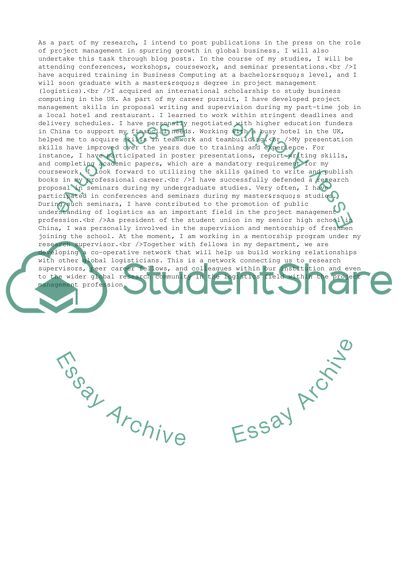Cite this document
(Leadership Professional Development and Career Management Admission/Application Essay Example | Topics and Well Written Essays - 2250 words, n.d.)
Leadership Professional Development and Career Management Admission/Application Essay Example | Topics and Well Written Essays - 2250 words. https://studentshare.org/management/1862733-leadership-professional-development-and-career-managementthe-individual-learning-portfolio
Leadership Professional Development and Career Management Admission/Application Essay Example | Topics and Well Written Essays - 2250 words. https://studentshare.org/management/1862733-leadership-professional-development-and-career-managementthe-individual-learning-portfolio
(Leadership Professional Development and Career Management Admission/Application Essay Example | Topics and Well Written Essays - 2250 Words)
Leadership Professional Development and Career Management Admission/Application Essay Example | Topics and Well Written Essays - 2250 Words. https://studentshare.org/management/1862733-leadership-professional-development-and-career-managementthe-individual-learning-portfolio.
Leadership Professional Development and Career Management Admission/Application Essay Example | Topics and Well Written Essays - 2250 Words. https://studentshare.org/management/1862733-leadership-professional-development-and-career-managementthe-individual-learning-portfolio.
“Leadership Professional Development and Career Management Admission/Application Essay Example | Topics and Well Written Essays - 2250 Words”. https://studentshare.org/management/1862733-leadership-professional-development-and-career-managementthe-individual-learning-portfolio.


